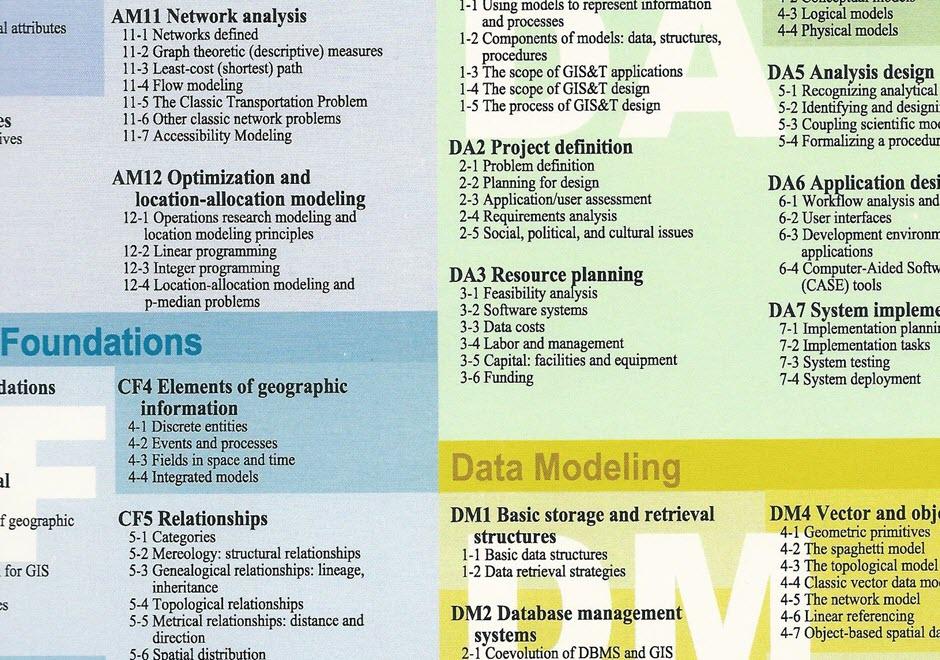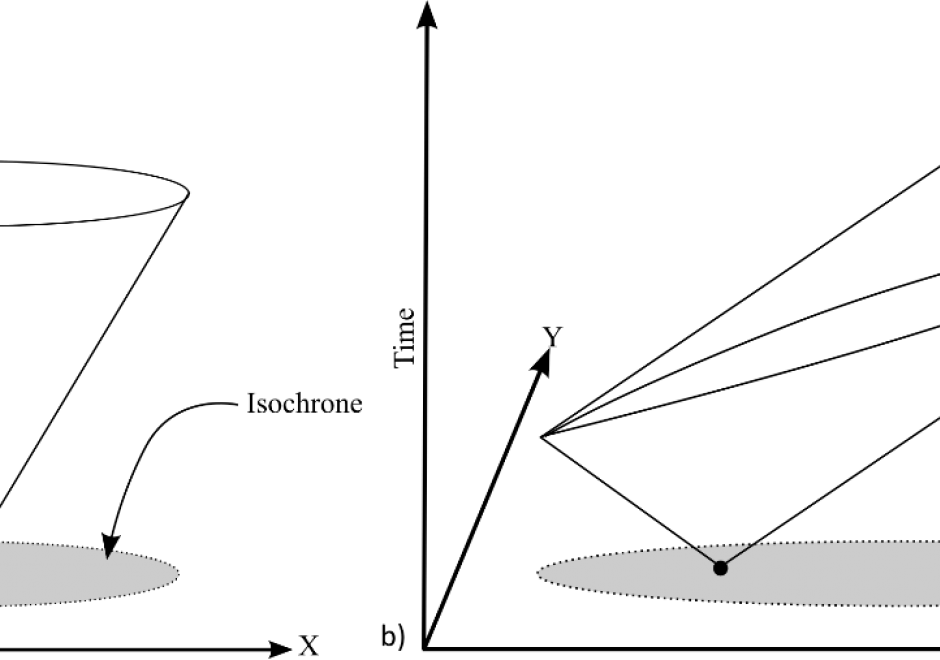AM-48 - Mathematical models of uncertainty: probability and statistics

- Devise simple ways to represent probability information in GIS
- Describe the basic principles of randomness and probability
- Compute descriptive statistics and geostatistics of geographic data
- Interpret descriptive statistics and geostatistics of geographic data
- Recognize the assumptions underlying probability and geostatistics and the situations in which they are useful analytical tools


AM-94 - Machine Learning Approaches
Machine learning approaches are increasingly used across numerous applications in order to learn from data and generate new knowledge discoveries, advance scientific studies and support automated decision making. In this knowledge entry, the fundamentals of Machine Learning (ML) are introduced, focusing on how feature spaces, models and algorithms are being developed and applied in geospatial studies. An example of a ML workflow for supervised/unsupervised learning is also introduced. The main challenges in ML approaches and our vision for future work are discussed at the end.